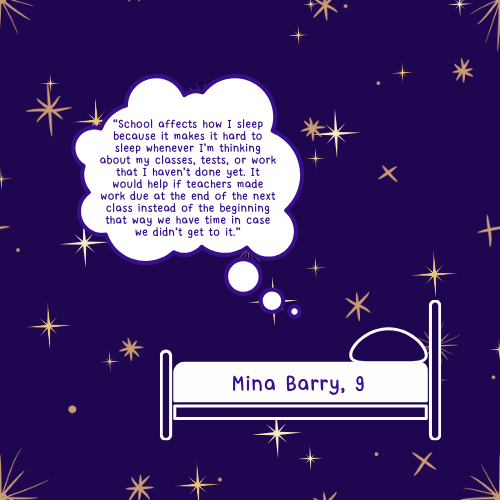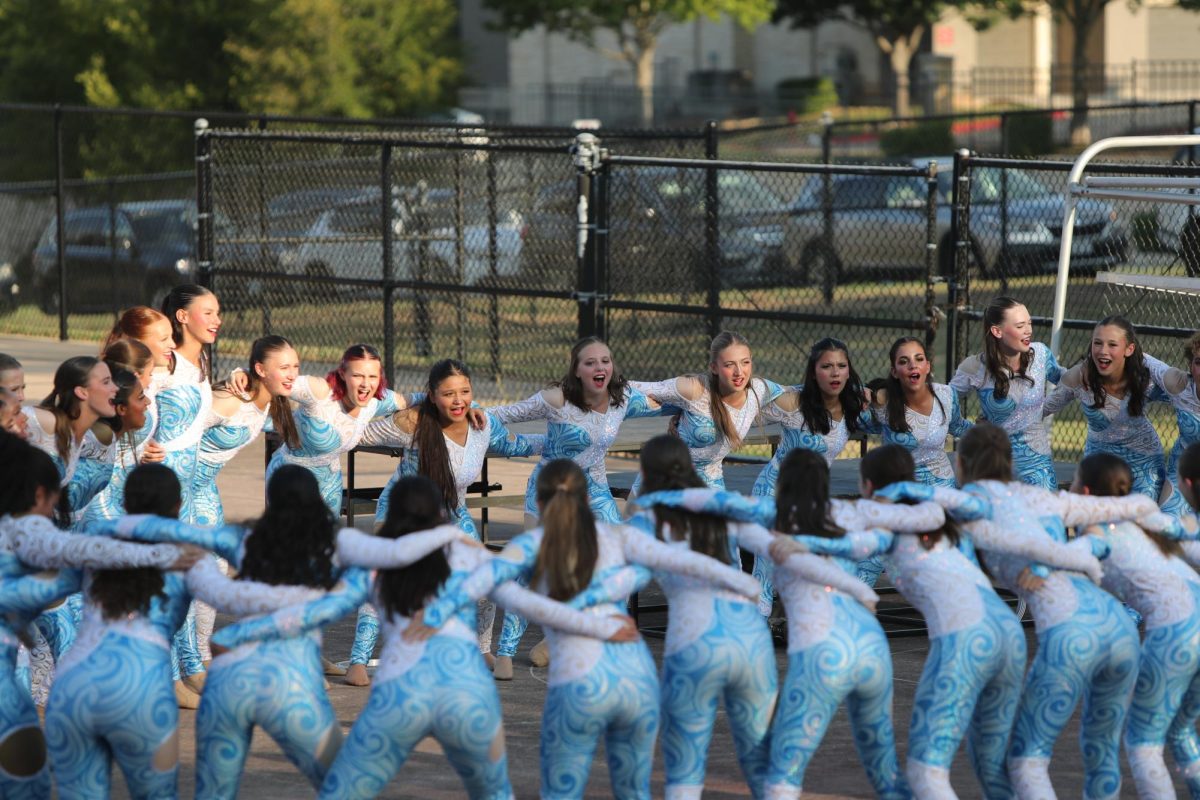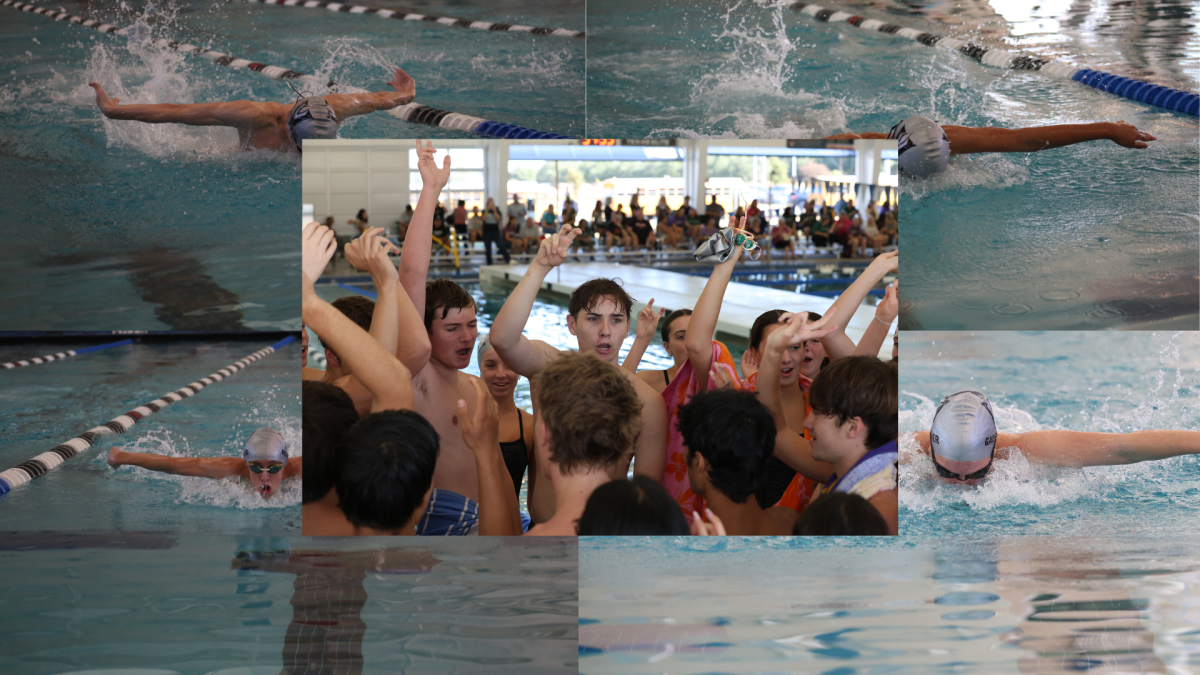The gauntlet
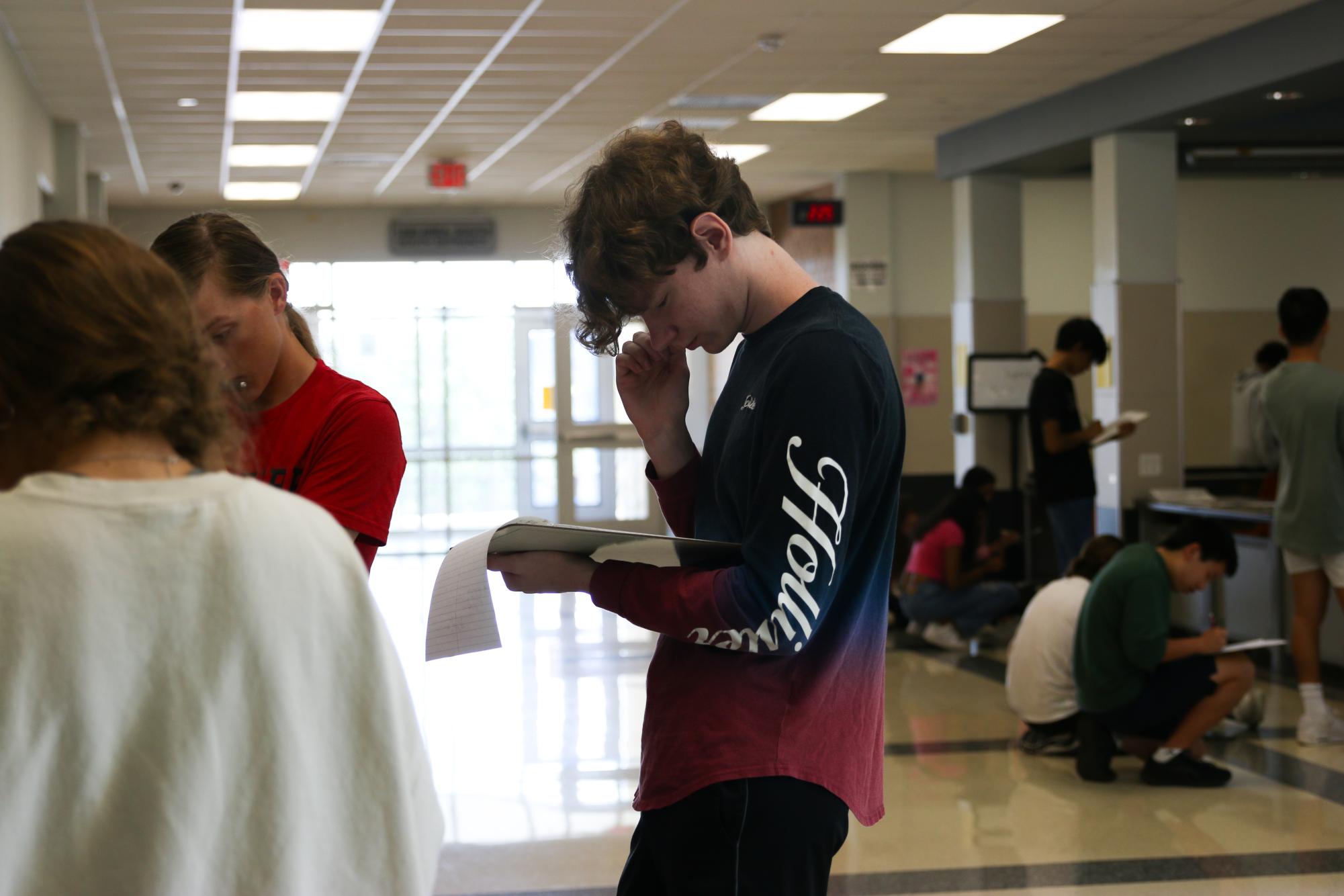
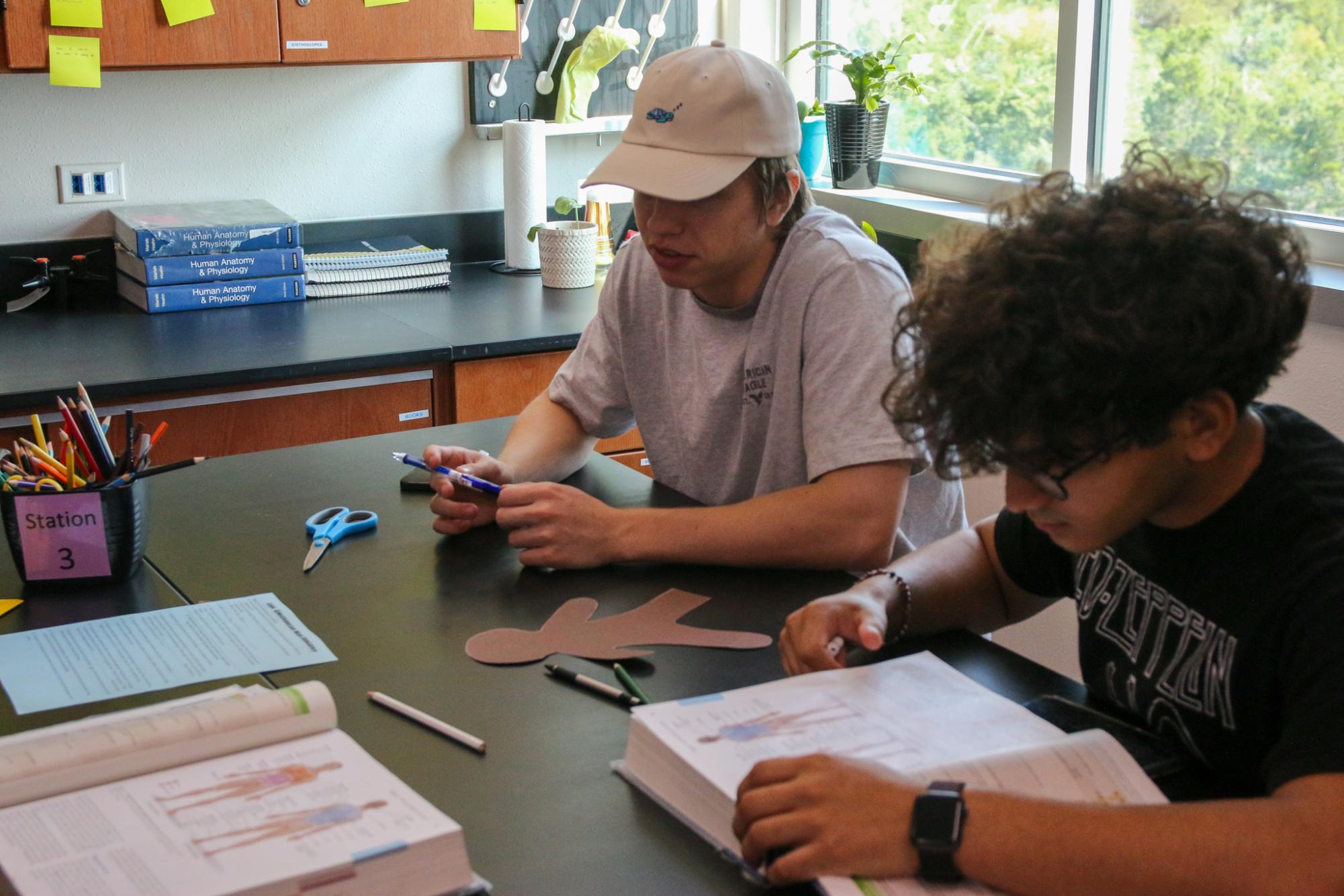
As the ninth grader is playing video games, he suddenly remembers his English assignment he has to do before midnight. As he opens his computer, he starts panicking. Sweat drips down his face, misspelling words and typing as quickly as he can. He’s shocked to find out he only has a few minutes left before the deadline. He turns it in and has a sigh of relief, until the next day where he finds out that he received a low grade and must redo it.
Some ninth graders adapted to Vandegrift in just a few months since the start of the school year in August. They needed to fix their old habits from middle school in order to obtain good grades and to avoid repeating classes again or doing them over the summer. Some take a different approach in transcribing notes and becoming more engaged in the classroom and learning the material.
“[I like] just meeting new people, so I’m able to ask around and just connect with people,” Hannah Lee said. “Just be confident and get to meet people so that you learn different people’s surroundings.”
There’s a noticeable increase in the amount of schoolwork in high school compared to middle school, and students have a bigger responsibility in completing their classes in order to graduate.
“Taking a break for two hours doesn’t work in high school because there is a lot more homework, and we have to study for more tests,” Sheng Wu said. “It’s getting easier as it goes because I’m starting to adapt more and getting a better feel of it.”
Students cannot take an increased break from school in order to obtain better grades.
“I would say [it differs] by consequences, but consequences turn into profit,” Kyle Dilauro said. “Once I realized that sometimes things would change in those classes, how they worked, they would change rapidly. Once I just realized how all of my classes worked and how they worked efficiently.”
An important way to decrease workload in school includes taking notes and being organized, so it becomes much easier to find all of the information needed for classes.
“Now I keep binders and folders to keep my work, and I work twice as hard as in middle school,” Shaurya Singh said. “I used to procrastinate a lot in middle school, but now in high school I stopped procrastinating.”
A main reason why students feel distracted is due to cell phone technology, and they can’t ever focus.
“It got easier during the first cycle,” Singh said. “As long as you study and take notes, you should do fine.”
Many teachers struggle by having students that don’t do their work which makes their job harder to grade them.
“Just giving them some reminders [helps], hopefully making my class a little bit more engaging, something that they can actually find interest in and help them to keep focus,” Jackson Pierce, ninth grade English teacher, said. “I think with just so much information coming in, and especially technology nowadays, that there is always access to something else, when we’re on computers.”
A big challenge for teachers remains calming their class down, especially now with many students having all sorts of ways to distract themselves.
“They’re getting emails constantly, they’re getting Snapchat on their phone, so it’s just so much information that at the same time that can be kind of difficult to get them to just focus on one thing, get that done, and move on to another,” Pierce said. “Typically, it’s just a conversation. Luckily, I don’t have too crazy kids this year, but usually just a conversation if they really need to calm down. It needs to be a, ‘Hey, this is a classroom. We need to get things together, because we can’t be successful in here at a energy level that’s too much.’”
The weight of the textbooks and the constant buzz of conversations around her only seem to amplify the relentless pounding of her stress in her chest. The classrooms where knowledge once freely flowed now only add to the suffocating weight of unfinished assignments leaning upon her shoulders. Her mind grew fuzzier, her chest tighter, and her head began to spin at a momentum that left her unable to think straight.
With the middle of the school year approaching and midterms coming up, many students experience varying levels of stress this school year. Balancing extracurricular activities, attempting to uphold a social status, or any other reasons, students all possess different experiences and approaches to dealing with school related stress.
“There’s a lot of things [that make school stressful],” counselor, Charity Escott said. “I think one of them, for high school students especially, is navigating the eight different or seven different classes and assignments, because I’m not sure if, as a school, we make sure things like tests or due dates are spread out. So, then you can have a few days that seem ‘Oh, this is nice’. And then suddenly everything seems to be due all at the same time.”
According to crossrivertherapy.com, 45% of students feel stressed out almost every day of school, as well as 61% of teenagers between the ages of 13 to 17 stress due to the pressure of accomplishing good grades.
“For me, the best relief for stress is being able to take time for myself,” freshman Sean Paz said. “If I can do that, it makes me reset in a way, and I’m able to stay calm and get all of my work done efficiently while resetting my mental health, specifically when I have had a rough day at school.”
When a student experiences stress, exercise can help a lot or by just taking their mind off the situation as stated by Escott. However, if a student is at school at the time in which they need help they can go to the Zen Den in the counselor’s office to take a breather or ask for help.
“[To make school easier], teachers could assign less homework or make it completion only, not based on the accuracy of the work,” junior, Jackson Stafford said, “Homework is essentially just mandatory studying, but with teachers taking grades on it, students get very stressed if they do not complete it accurately, because it may worsen their grade in the class, so they resort to cheating and looking up answers, which does not help them learn the material.”
As mentioned in McleanHospital.org, people who tend to not manage time well and put off work longer are more prone to having stress or anxiety issues. In addition, it stated that not managing time properly, can strip someone of time for themselves, family, etc.
“Time management in both high school and college is critical,” Paz said, “Being proactive in class and engaging and being productive in class when given time to work essentially relieves the workload that you get at home. I try to get all of my daily assignments out of the way during class so then I can study for my major quizzes and tests at home and practice my instrument and have time for myself.”
.
According to Escott, a good way to stay social and have a break from some of the stresses in school is with extracurriculars; however, if someone does not manage their time between extracurriculars and school, that can cause many issues.
“I guess it’s a love-hate relationship with extracurriculars, because like, on one hand, you know, not having as much time for schoolwork is pretty stressful like my academics but also, honestly, if you’re in an extracurricular that you really love,” freshman, Abigail Xu said. “It also is kind of comforting because you can be doing something you enjoy rather than just school all the time and you also have a support system because you have friends or are close to people.”
Social media can be a great resource when someone experiences stress, according to senior Breanna Baez, for her scrolling online at funny memes can help her calm down at times; however, she does think social media can have some negative effects.
“Social media can affect the stress of students by making it very easy to compare themselves to others, physically, mentally, and emotionally,” Stafford said, “so if they see someone who is ‘better’ online, they may have feelings that they may never be as good, and to give up, so then they start losing motivation to do school work, then they get stressed because they aren’t doing their work and are now getting bad grades.”
As explained by Escott, although seeing others succeed on social media when someone themselves is in a rough place can be unencouraging, what’s best is to focus on personal needs and not to compare oneself to those around them.
“Now, when things layer that becomes stressful too,” Escott said, “plus all of the extracurricular activities and the somehow where this comes from it comes from a lot of places, the community, their friends, this idea that they have to be constantly in something or doing something in order to have any level of success in the future. I think that adds a lot of pressure when that’s not always the truth.”
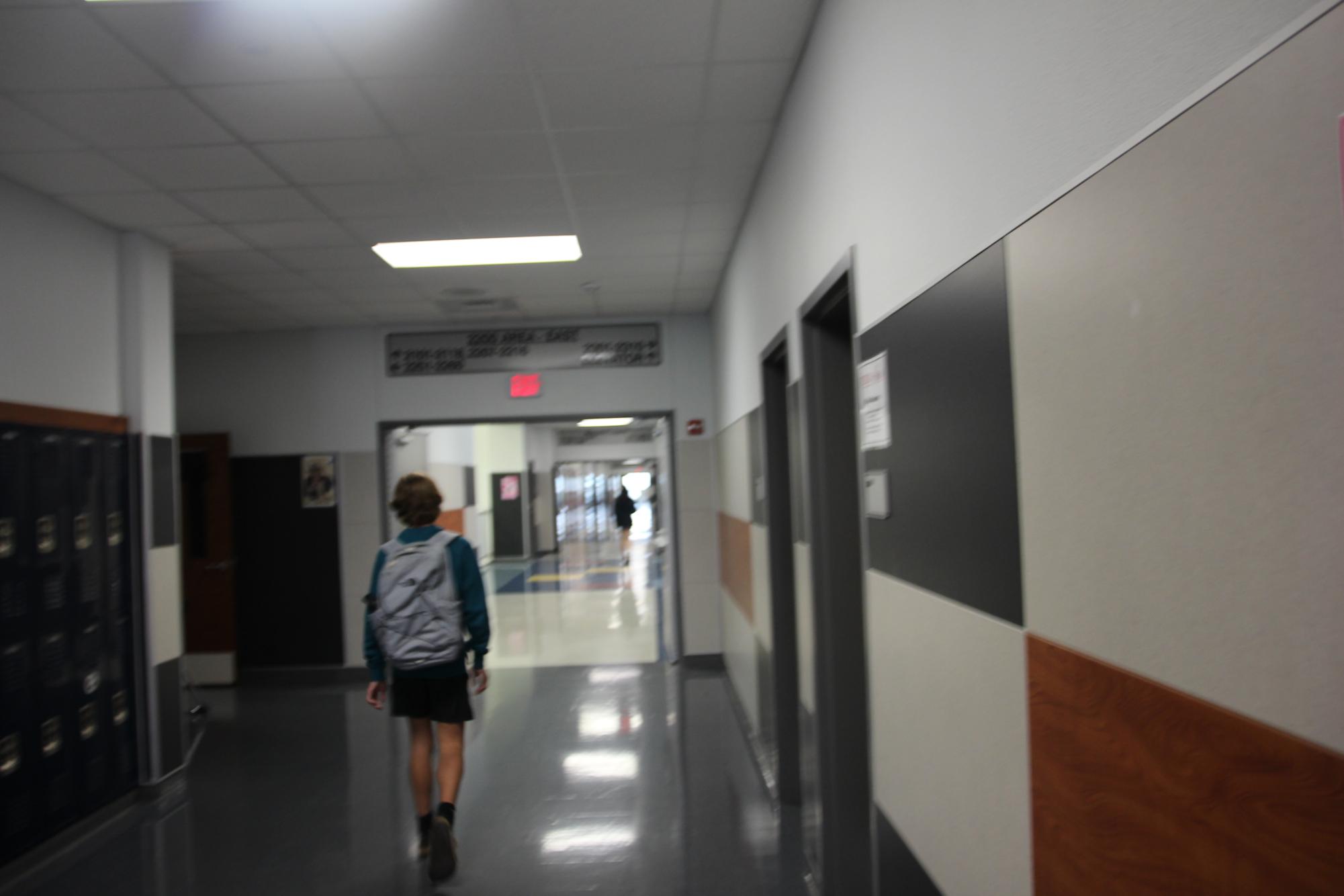
It’s a typical day at Vandegrift High. The various students line the halls rushing to class. They look generally happy but deep under the surface of their smiles or looks of indifference there is a world of pain occurring. Nobody knows what stressors from friends or family are taking place.
A varied group of students struggles to balance the responsibilities of academics with the sometimes-ignored area of mental health in the busy hallways of Vandegrift High School. As every student makes their way through the maze of assignments, tests, and personal challenges, their combined experiences create a story that explains the complex relationship between academic performance and mental health in today’s high school setting.
“I believe that mental health is a big proponent when it comes to doing well academically,” sophomore Yahli Avni said. “When I am feeling sad, or even depressed, I have a hard time doing well academically.”
Just like Yahli Avni, some students agree that when they’re not in the best head space, their willingness to do well in the classroom suffers. People do have ways to cope with this stress though and they’re a good way to get their minds “off” things according to students.
“What helps balance out my academics and mental health is taking breaks in between work,” sophomore Isabella Harrison said. “It allows my mind to reset and get back on track.”
Studies show that taking regular breaks can help you be more productive than working without stopping. Another student finds this helps them as well.
“When I have a lot of work to do, I like to take a short break in-between them,” junior Seth Hickman said. “If I constantly do work, it’s overwhelming.”
While taking breaks proves helpful for some students, others find solace in various activities that allow them to decompress. Interestingly, recent studies have shown a correlation between regular physical exercise and improved mental well-being.
“I like being active, whether going for a run or playing a sport,” junior Andrei Savinov said. “It not only helps me stay physically healthy but also acts as a stress-reliever.”
Just like this student, other students find that activity, whether playing sports, or running. Physical activity is proven to boost your mood.
“Whenever I am playing basketball with my friends, all my worries about school go away,” junior Korben Brown said. “I feel like everyone should try and be active.”
One of the most common answers from the students is undoubtedly family. Family plays a significant role in a student’s life and it is important to spend time with them as they can help through tough times.
“Whenever I am feeling down, I like to do activities with my family,” freshman Sasha Kasha said. “family to me is very important and I think I would not be where I am today without them.”
Recognizing the importance of family in a student’s mental health is critical according to studies from the mental health center, in addition to school-based help. Studies from the department of education reveal that support inside the family has a favorable impact on a student’s capacity to manage their academic journey while preserving their mental health.
“Taking care of my mental health wasn’t distracting me from my work,” Savinov said. “It was a way of unlocking my full potential.”
The sound of music mixes in with the clacking of her fingers on the keyboard as she rushes to finish her essay. It was pitch dark, both outside and in her room, with the only light coming from her computer. Freshman Laya Balasubramanian had worked for the past four hours, ever since she returned home from her choir performance at 8 p.m. Finally, the sound of typing stopped, and she sighed heavily, reading over her lab report with tired eyes. She shut her laptop and readied herself for bed, climbing into her inviting and warm covers. She set a timer for 3 a.m. and struggled to let her consciousness drift away, mind stuck on all of the schoolwork she would have to finish before she went to school the next day.
Many students find it more and more difficult to rest enough to keep them energized and focused throughout the school day. This traces back to academic stress, time-consuming extracurriculars, and excessive homework.
“School affects my sleep schedule a lot,” Balasubramanian said. “Most nights I sleep six hours, but if I’m busy, it can go down to four. Preparing for big exams in advance with additional homework and understanding new concepts is impossible. Especially, since most notes that we take are all self-study and make it incredibly hard to understand new concepts with no previous knowledge.”
According to the CDC, teenagers from ages 13-18 should sleep 8-10 hours per night. If not, teens have a higher risk of car accidents, mental health issues, substance abuse, and even high blood pressure. The ability to retain information and pay attention also suffers when students don’t sleep enough. Despite this, studies show that 7/10 of high school students in the United States don’t receive the recommended amount.
“I get, like, four to five hours [of sleep] per night,” senior Emaan Sudozai said. “I have college applications, and then it’s just piles on piles on piles [of homework] and other stuff that I have that I’m just staying up through the night.”
The heavy pressure on seniors stems from applying to colleges and planning out the next steps in their lives. However, school can affect and stress out younger students as well.
“I stay up late and then wake up early for school, and I think it’s completely ruined my sleep schedule because I always feel tired,” sophomore Pearl Lam said. “Homework from core classes are usually the reason I stay up. I have lots of AP classes, and all of them have really heavy workloads.”
Vandegrift High School aims for academic excellence in every class, including extracurriculars and electives. Band, for instance, can demand time outside of school from its students for practice anywhere from 4-12 hours a week.
“Band during competition season is way worse because you might get home anywhere between, 10 p.m. – 2 a.m.,” freshman euphonium player Gail Xu said. “The band directors, every once in a while, if there’s a big competition week, and we don’t have a lot of time, will give us the period to do homework and work.”
Teachers can’t just stop giving homework, even if students like senior Axel Nicanord wish they could. But just like the band directors, academic teachers can take actions to help students.
“I think if [teachers] give us extra time in class to sit and do our homework that’d be really nice,” Nicanord said. “It’s helpful because I finish more of it in class, and then I don’t have to do it at home.”
Of course, teachers can’t take all of the blame when it comes to the amount of time it takes to do work. Still, different time management techniques can assist students keep track of what they need to do and avoid procrastination.
“I feel like planners help, kind of, but if you’re not a planner type of person, if you do little bits of work, that works,” Sudozai said. “Because I feel like people get overworked to the point where they burn themselves out. So, if you plan little breaks in between study sessions that would help.”
Still, school impacts the nightly rest of teens even when they don’t have homework. According to Baylor College of Medicine, stress from the pressures of school can prolong the amount of time it takes to fall asleep. But, students can take many different measures to gain a healthy and proper sleep schedule.
“School affects how I sleep because it makes it hard to sleep whenever I’m thinking about my classes, tests, or work that I haven’t done yet,” freshman Mina Barry said. “It would help if teachers made work due at the end of the next class instead of the beginning, that way we have time in case we didn’t get to it.”
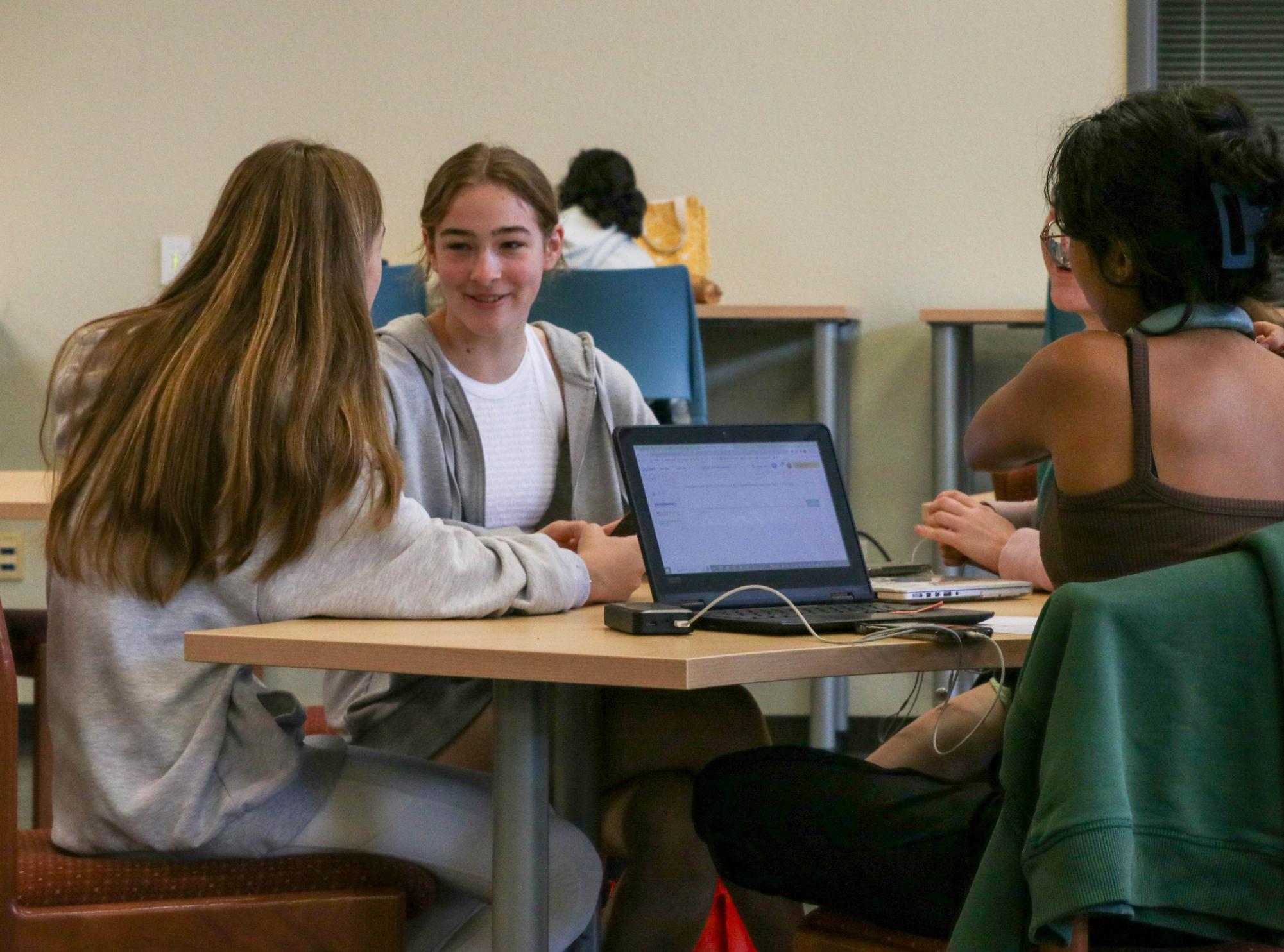
A student walks past the parking lot outside building two. It lies completely empty. They’ve spent the past few years using the lot, but now, by rule of the AP Office, only staff are allowed to park there. And there’s nothing they can do about it.
This past year, students have searched for a voice on campus. The changes made this year by the admin included shortening passing periods and PIT.
“I don’t like it…I’m rushing,” junior Selena Xu said. “I’m usually late and I’m worried about being late to all my classes when I wasn’t before.”
The change is a result of a state mandate regarding class length. One thing the school can control, however, is the enforcement of library passes. Unlike last year, the librarians will now bar entrance from students who didn’t sign up to eat lunch there.
“It’s fine, it’s just kind of annoying. I guess, it was salutary neglect,” Xu said.
Another change this year concerned the closure of the band parking lot to students, many of whom rely on the lot’s proximity to the band hall to quickly transport large instruments. The cited cause is that it was done to improve traffic by allowing teachers more space to park.
“I don’t really see the point in doing it,” junior Zachary Carruba said. “I don’t think it’s made traffic better and it’s empty almost all of the time. There’s just less student parking. I didn’t hear anything about teachers needing any more parking, especially not in that part of the parking lot.”
Solving issues like these remains the role of the student council, the primary voice of the student population on campus. The council acts as a mediator between the administration and the students. But do they?
”I don’t see them, I don’t interact with them, I don’t know who they are, they don’t have any impact on the school,” Xu said.
Even simple details like the names of their student council members are unknown to some. In annual elections, campaigning mostly involves putting posters around the school.
“I haven’t really heard of them doing anything,” Carruba said.
If the student council becomes removed from the student body, students may lose their say at the school.
“I don’t really look for a voice,” Carruba said. “But I also don’t think that it’s very readily available…I don’t feel I’d be able to be heard.”
If a larger issue arose, there may be trouble in solving it under the current circumstances.
“As a student, I mean,” Xu said, “do any students get the voice that they want?”


